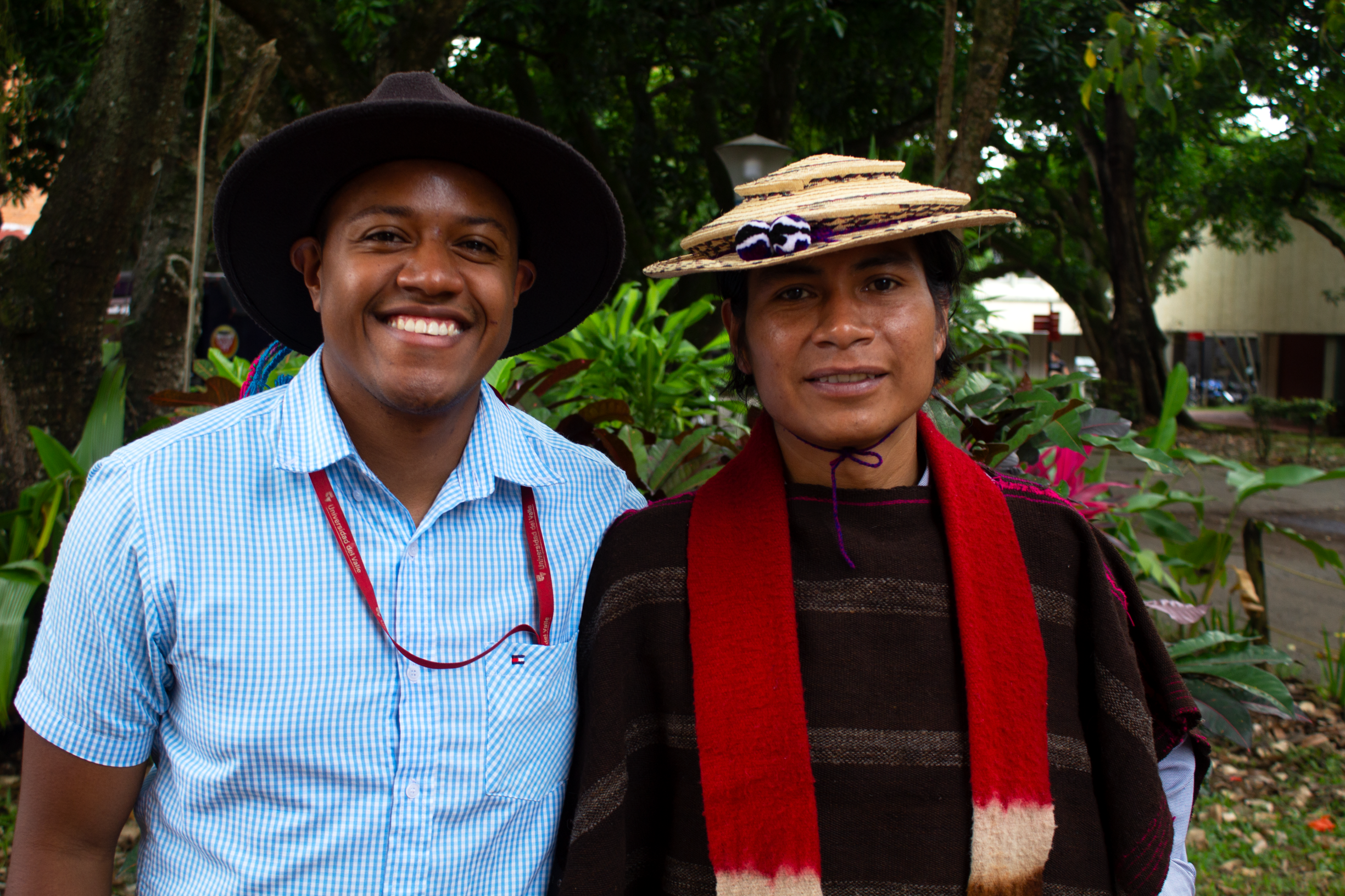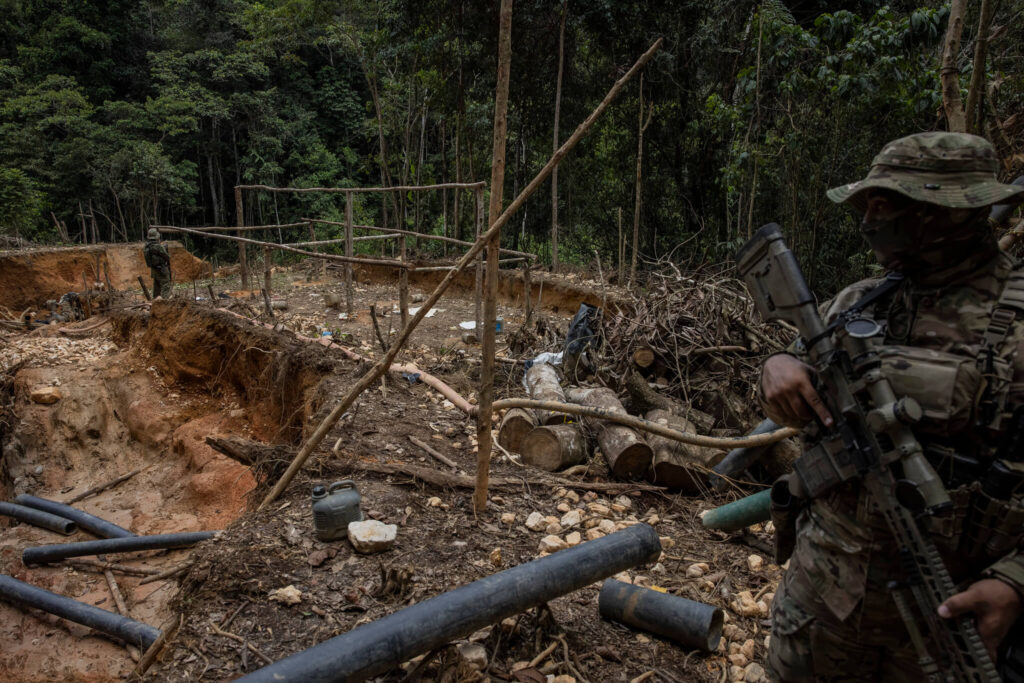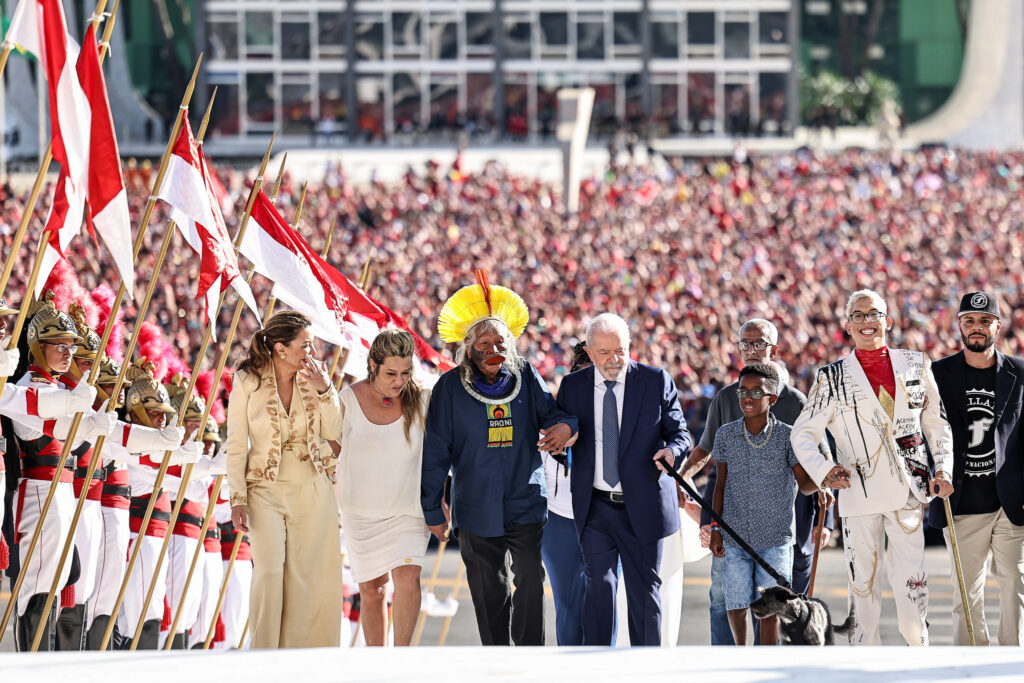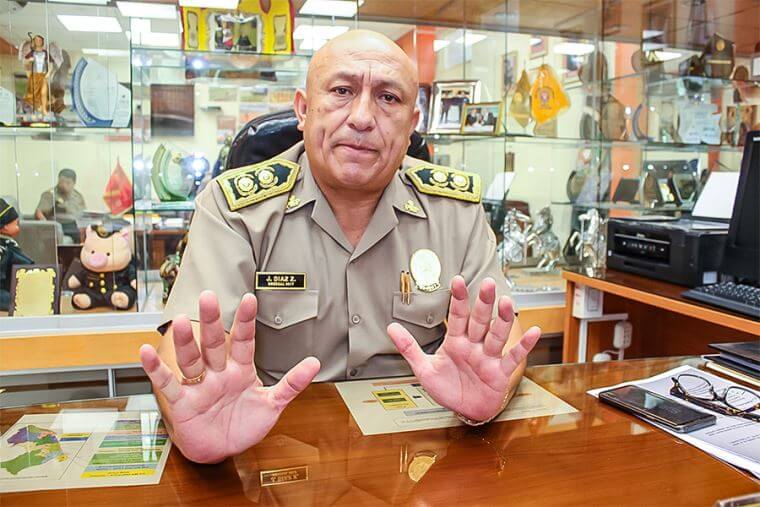Cali, Colombia – More than 50 years ago, an indigenous community in Silvia, Cauca, Colombia allowed the entry of modern materials such as plastic, glass and others into their territory, polluting ecosystems and strongly impacting on the community’s spiritual connection to their land.
Today the Misak-Nuyapalø community of San Fernando, also known as the “children of the water and the rainbow,” seek to preserve their connection to the territory and maintain the ecological balance through a new recycling project. The project has its origins in a friendship that began in the classrooms of the Universidad del Valle (Univalle).
In 2018, Colombia generated approximately 21.38 million tons of solid waste (equal to the mass of 30 supertanker ships), but only 11.1% of the total was used for recycling and new utilization, according to figures from the Colombian government’s National Administrative Department of Statistics (DANE).
Fabio González, a researcher of the project, degree candidate of the Sanitary and Environmental Engineering Program of the Natural Resources and Environmental Engineering (EIDENAR) and member of the Colombian Network of Engineering and Social Development-Univalle (ReCIDS) explained that researchers and community members worked together through a project in which different methodologies were used, such as: Participatory Action Research (PAR), social appropriation of knowledge and dialogue of knowledge.
Gonzalez commented that through combining ancestral and academic knowledge, in the midst of several participatory workshops and activities related to the study of solid waste, the community could reflect and build sustainable solutions connected to their way of living on the land.
“The community participated in all the moments of the project, both in the construction and in the development of activities: interviews, workshops and data analysis,” said Gózalez, adding that the community participated in all the decisions of the project.

The Project
According to the National Indigenous Organization of Colombia (ONIC), the Misak people represent 1.5% of Colombia’s indigenous population and some 19,000 people live in the Guambia Indigenous Reservation in the Municipality of Silvia, Cauca, according to DANE statistics.
Wilmar Muelas, an indigenous member of the community and the current President of the Asociación de la Jardín Botánico Las Delicias, explained that the association, founded in 1999, was the organization that worked with the researchers in the execution of the project called: “Participatory formulation: alternatives for the sustainable management of solid waste in the Misak-Nuyapalø Territory of San Fernando, Silvia, Cauca”.
“It is very important for us, as indigenous communities, to start from our way of life to reduce our ecological footprint,” said Muelas; and added that the Botanical Garden project promotes ways to preserve the culture, language and traditional practices of the Misak.
Muelas and González met at Univalle years ago and it was González who helped the association compete for funding for the project they won from MinCiencias in Colombia.

“What is happening with this community is that they were burning solid waste near the houses, what we did with our project was to generate alternatives for solid waste management in a sustainable way in the community,” said González.
González explained that the first stage of the project was done through participatory workshops with the community: identifying the work area and the types of waste, where it was, where and how it was deposited, and how it is deposited.
“Then, we went on to characterize how much waste there is, what type of waste there is, in order to know what alternatives could be of interest and finally what was based on the principles of life of the Misak community”, González said, adding that they propose these alternatives that in a sustainable way will allow to recover and strengthen the balance between the community and its land.
Impact in the Community
Muelas explained the importance for the community of protecting the values of life, the territory and its ecosystems, and the education component itself as one of the most important aspects of the project.
“It was very important, for example, that we learned how to separate and classify solid waste,” Muelas said.
Muelas commented that clothing became one of the inputs to create living roofs and also glass became inputs to generate bio-construction.
González explained that the 22 families that benefited from the project were the ones who formulated and actively participated in the strategies, also taking into account a lot of the community’s own knowledge.
“It was a great challenge, but we did it and the most beautiful thing is that it was in the community,” González said.
This article originally appeared on the Faculty of Engineering (Universidad del Valle) website here and was reproduced with permission. It is authored by Andrew James (NCC/Univalle).
If you are interested in contacting the researcher or learning more about the project, please write to the Communications Office, Faculty of Engineering: comunicaingenieria(at)correounivalle.edu.co.











